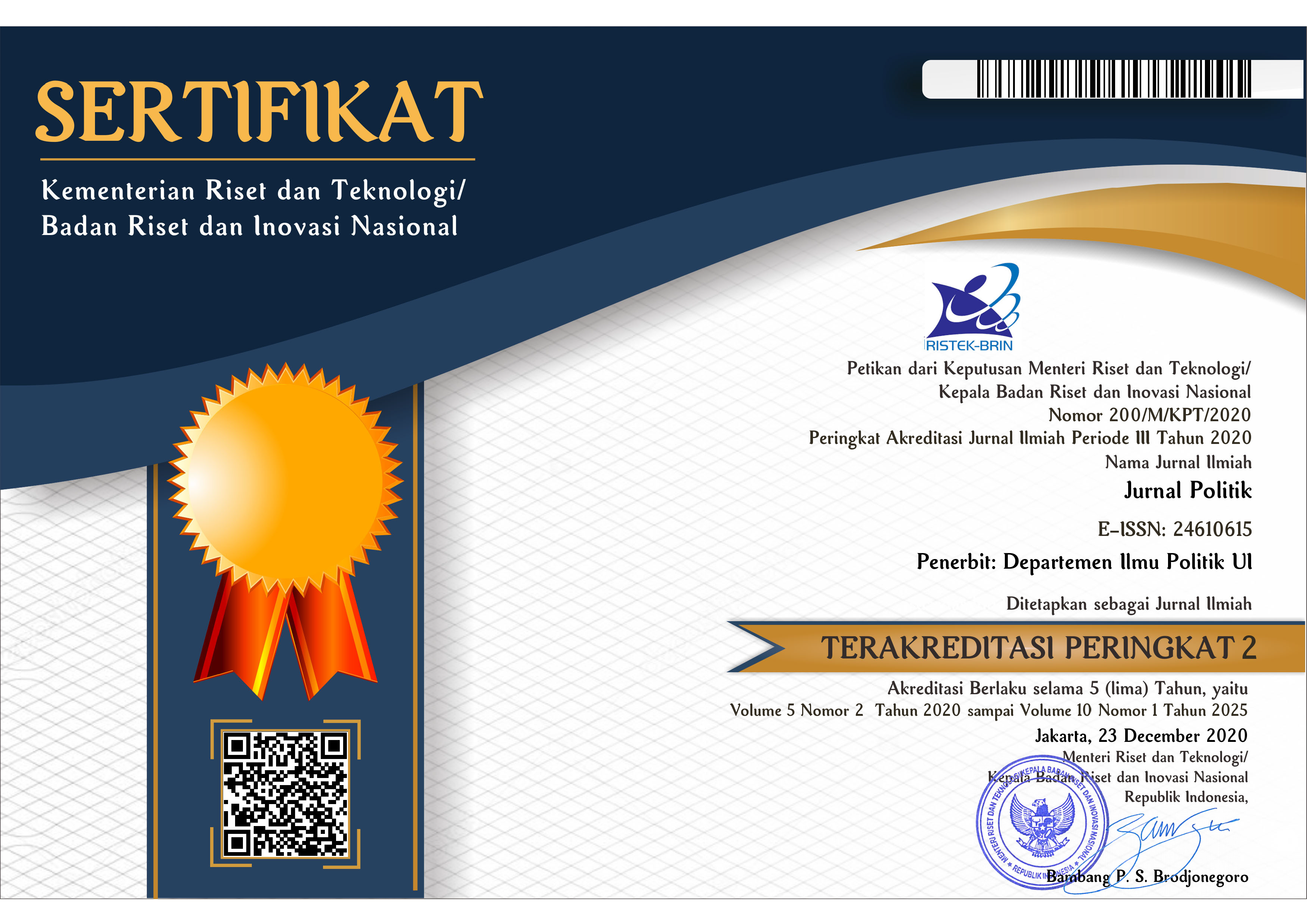Abstract
This research aims to analyze the reason why the electoral political strategies of the labor movement in South Korea tend to be ineffective after 2004. It can be seen by the decrease in the number of positions obtained by the labor party in the national parliament, the internal party factions, the gap between the organization of the labor movement and the party, the party is unable to expand its support base and to accom¬modate other national policy issues. This research uses a qualitative methods and the secondary data to answer the research question. The analysis is referred to a research conducted by Collins. She stated that there are two aspects that determine a movement in order to form a successful political party in electoral politics. The two aspects are the political opportunity and resource mobilization undertaken by the movement. I argue that the cause of ineffectivenss in the electoral strategy of labour movement in South Korea after 2004 were the existence of obstacles in the political opportunity which has not been favorable for them and in the resource mobilization.
Recommended Citation
Pratiwi, Dana
(2018)
"Strategi Politik Elektoral Gerakan Buruh di Korea Selatan (2004-2014),"
Jurnal Politik: Vol. 3:
Iss.
2, Article 2.
DOI: 10.7454/jp.v3i2.1087
Available at:
https://scholarhub.ui.ac.id/politik/vol3/iss2/2


